
Laura Sanders reports on neuroscience for Science News. She wrote Growth Curve, a blog about the science of raising kids, from 2013 to 2019 and continues to write about child development and parenting from time to time. She earned her Ph.D. in molecular biology from the University of Southern California in Los Angeles, where she studied the nerve cells that compel a fruit fly to perform a dazzling mating dance. Convinced that she was missing some exciting science somewhere, Laura turned her eye toward writing about brains in all shapes and forms. She holds undergraduate degrees in creative writing and biology from Vanderbilt University in Nashville, where she was a National Merit Scholar. Growth Curve, her 2012 series on consciousness and her 2013 article on the dearth of psychiatric drugs have received awards recognizing editorial excellence.

Trustworthy journalism comes at a price.
Scientists and journalists share a core belief in questioning, observing and verifying to reach the truth. Science News reports on crucial research and discovery across science disciplines. We need your financial support to make it happen – every contribution makes a difference.
All Stories by Laura Sanders
-
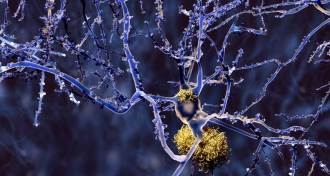 Neuroscience
NeuroscienceYear in review: Alzheimer’s drug may clarify disease’s origins
Researchers will now test whether a treatment that swept away amyloid brain plaques also improves cognitive performance.
-
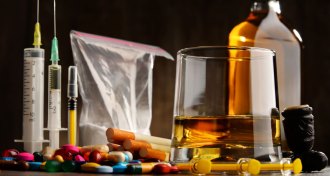 Health & Medicine
Health & MedicineNumber of teens who report doing drugs falls in 2016
Drug use is down among teens, survey finds.
-
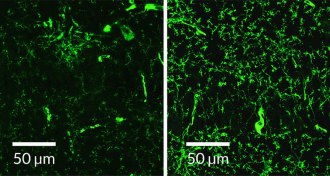 Neuroscience
NeuroscienceBrain waves show promise against Alzheimer’s protein in mice
Flickers of light induce brain waves that wash amyloid-beta out of the brain, mouse study suggests.
-
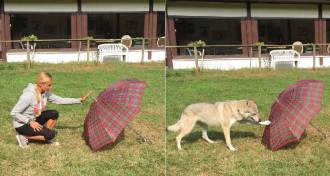 Animals
AnimalsDogs form memories of experiences
New experiments suggest that dogs have some version of episodic memory, allowing them to recall specific experiences.
-
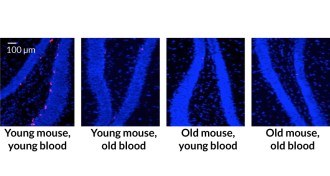 Health & Medicine
Health & MedicineOld blood carries risks for brain
Young blood may not save the brain, by one measure at least.
-
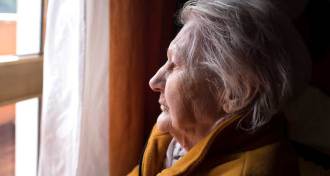 Neuroscience
NeuroscienceDespite Alzheimer’s plaques, some seniors remain mentally sharp
Plaques and tangles riddle the brains of some very old and very healthy people.
-
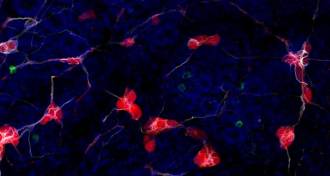 Neuroscience
NeuroscienceProtein linked to Parkinson’s travels from gut to brain
Parkinson’s protein can travel from gut to brain, mouse study suggests.
-
 Neuroscience
NeuroscienceSounds and glowing screens impair mouse brains
Too much light and noise screws up developing mice’s brains.
-
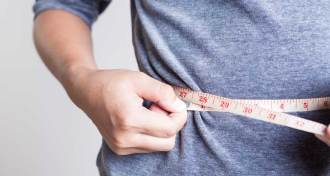 Neuroscience
NeuroscienceZap to the head leads to fat loss
Stimulating the vestibular nerve led people to shed fat in a small trial.
-
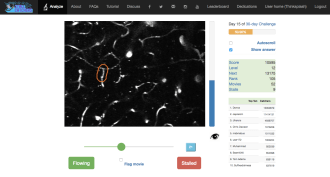 Life
LifeWebsite turns Alzheimer’s research into a game
A new game assists Alzheimer’s researchers in the hunt for stalled blood vessels in the brains of mice.
-
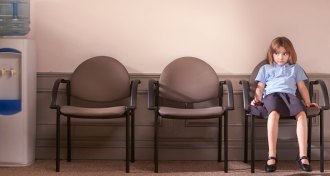 Health & Medicine
Health & MedicineWhat not to do when your kid tells a lie
We teach children that lying is naughty, but it’s actually a sign of good brain development.
-
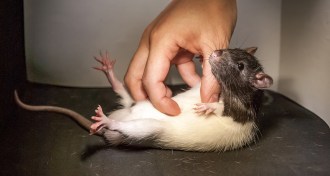 Neuroscience
NeuroscienceGiggling rats help reveal how brain creates joy
Rats relish a good tickle, which activates nerve cells in a part of the brain that detects touch.